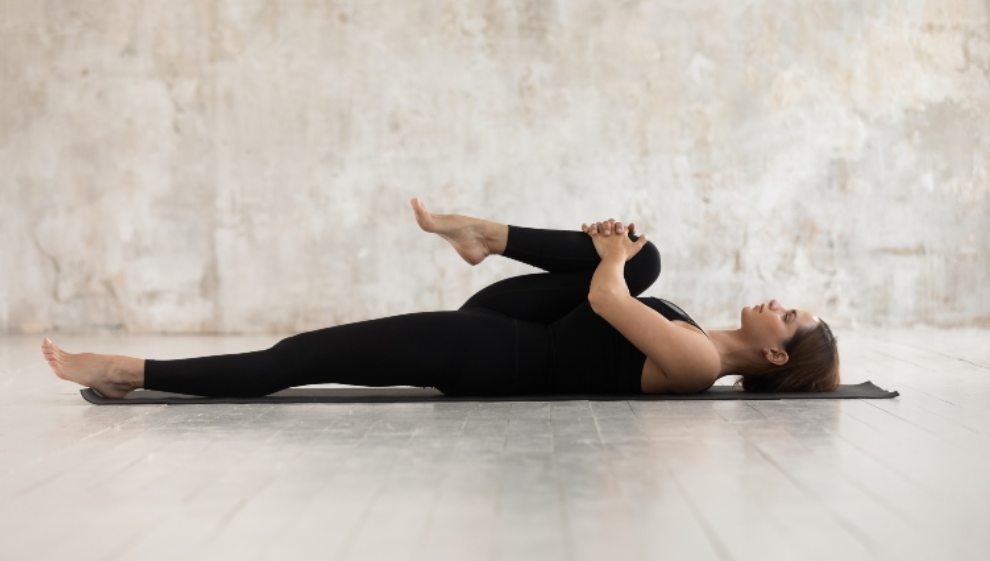The importance of recovery | Understanding the role of rest in any exercise plan
- Overview
- What actually happens when I’m resting?
- Am I getting enough rest?
- How does fatigue impact my training?
- I’m injured. What now?
- How does a training plan help manage rest?
- What you can do right after exercising
- What if I feel restless when I'm relaxing?
- Am I getting enough sleep?
- How recovery changes as we age
The importance of rest and recovery within a well-structured training plan cannot be overlooked. It may come as a surprise to learn that you become fitter and stronger whilst resting between training sessions, not whilst exercising. Without adequate rest, you will be left feeling burnt out, tired, and lacking the motivation needed to continue training hard toward your goal.
Any good training plan will factor in enough rest days to allow your body the time it needs to repair itself. So with that in mind, relax, put your feet up and learn more about rest and recovery below.
What actually happens when I’m resting?
Resting gives your body the time it needs to repair. Your body will build back stronger whilst you’re resting and sleeping because the biological processes involved in exercising aren’t being called upon.
Burnout when training is common if you aren’t eating and resting well enough. Without rest, your body can’t keep up with training. This is when you’ll feel more tired than usual, or “over-trained”.
Am I getting enough rest?

A low level of tiredness and fatigue when you’re in the middle of an exercise plan is normal, especially when you first start out.
Your new training regime is putting your body under a new level of stress, so it’s normal to feel a little more tired than usual.
We advise limiting your training to no less than two consecutive days. This means you’ll feel fresh and ready to give maximum effort during your next session.
A great way to do this is to train on Monday and Tuesday, have a rest day in the middle of the week on Wednesday, then train on Thursday and Friday before resting over the weekend.
How does fatigue impact my training?
When we exercise we cause low levels of damage to the body. This allows it to build back stronger if we take the time to rest. If your muscles ache more than usual and you’re feeling fatigued, this is likely due to a build-up of cortisol in the blood. This is our body’s way of telling us to slow down.
The good news is that there’s a simple solution to overtraining. You can easily dial back your training programme to incorporate more rest days as and when you need to. Some signs that you aren’t resting enough include:
- Difficulty falling asleep
- Increased irritability
- Feeling stressed and sluggish
- High levels of fatigue and tiredness
- Low appetite
- Muscle aches
- Brain fog and mental fatigue
I’m injured. What now?
If you’re injured and it’s impacting your training, you need to see a professional. If you continue to train through an injury, you risk further damaging the affected area which will side line you for even longer.
Whether it’s your knee, Achilles, foot, or back, the help of a physiotherapist can help you understand your injury and what the roadmap for getting back to your best as quickly as possible looks like.
How does a training plan help manage rest?
If you’re following a training plan, rest days will be built in to give your body the time it needs to repair and build muscle.
For beginners in any discipline, this rings true. It’s important to keep your training sessions under an hour to minimise the levels of cortisol (an anti-inflammatory stress hormone) in the body. As a beginner you are more prone to muscle tears and joint injury, so limiting the time you spend on a workout helps reduce this risk.
- New to running? Click here to see our beginner 5km training plan
What you can do right after exercising
The window immediately after you work out is important. Aim to eat a meal that prioritises carbohydrates and protein within 45 minutes of working out. This helps restore the nutrients, minerals, and glycogen that you’ve depleted during exercise.
Foam rolling is another great way to aid recovery. Foam rolling is a hugely popular recovery technique that utilises the body and pressure to alleviate tension and soreness in your muscles.
The method is part of a wider range of self-myofascial release (SMFR) recovery techniques. Using the body's own weight in conjunction with a foam roller, this form of self-massage effectively applies pressure to specific muscle points to release stress and tension.
What if I feel restless when I'm relaxing?

It sounds silly, but resting isn’t always easy. The urge to train on a rest day can often feel overwhelming, especially if you’re committed to achieving a specific goal.
A great way to make rest days easier is to remind yourself of the value of giving your body some downtime. Important background processes including cell regeneration, muscle growth and the reduction of stress hormones like cortisol cannot occur if you’re training too hard without adequate rest.
It’s also important to remember that you will not be able to complete your next training session at a high intensity if you are tired, lethargic or over-trained. If you find yourself itching to stay active on rest days, take a walk or engage in some light active recovery (yoga and Pilates are great options).
Am I getting enough sleep?
The average human will spend around 1/3 of their life asleep, and for good reason. Sleep is where the most important recovery occurs as both mind and body can rest.
Whilst getting around 8 hours a night may not be practical for everything, using this as a healthy amount of sleep to aim for is a good place to start.
How recovery changes as we age
Whilst older adults typically need the same amount of sleep as other adults, the way the body recovers from exercise changes drastically as we age.
Sarcopenia and the gradual decrease in metabolism over time mean that our muscles and tendons take longer to recover from exercise as we get older. In fact, the actual size of our muscle fibres decreases over time. This places a greater load on the muscle we have retained, making it harder to recover quickly.
What can we do about this? Experts advise adjusting your recovery routine slightly to focus more on nutrition and getting enough good quality sleep. As you get older, you will probably find that you can’t get away with training on a poor diet or a few hours’ sleep anymore. To understand the impact of both sleep and nutrition on our health and wellbeing, click either of the links below:
Last updated Thursday 12 October 2023
First published on Thursday 20 July 2023
